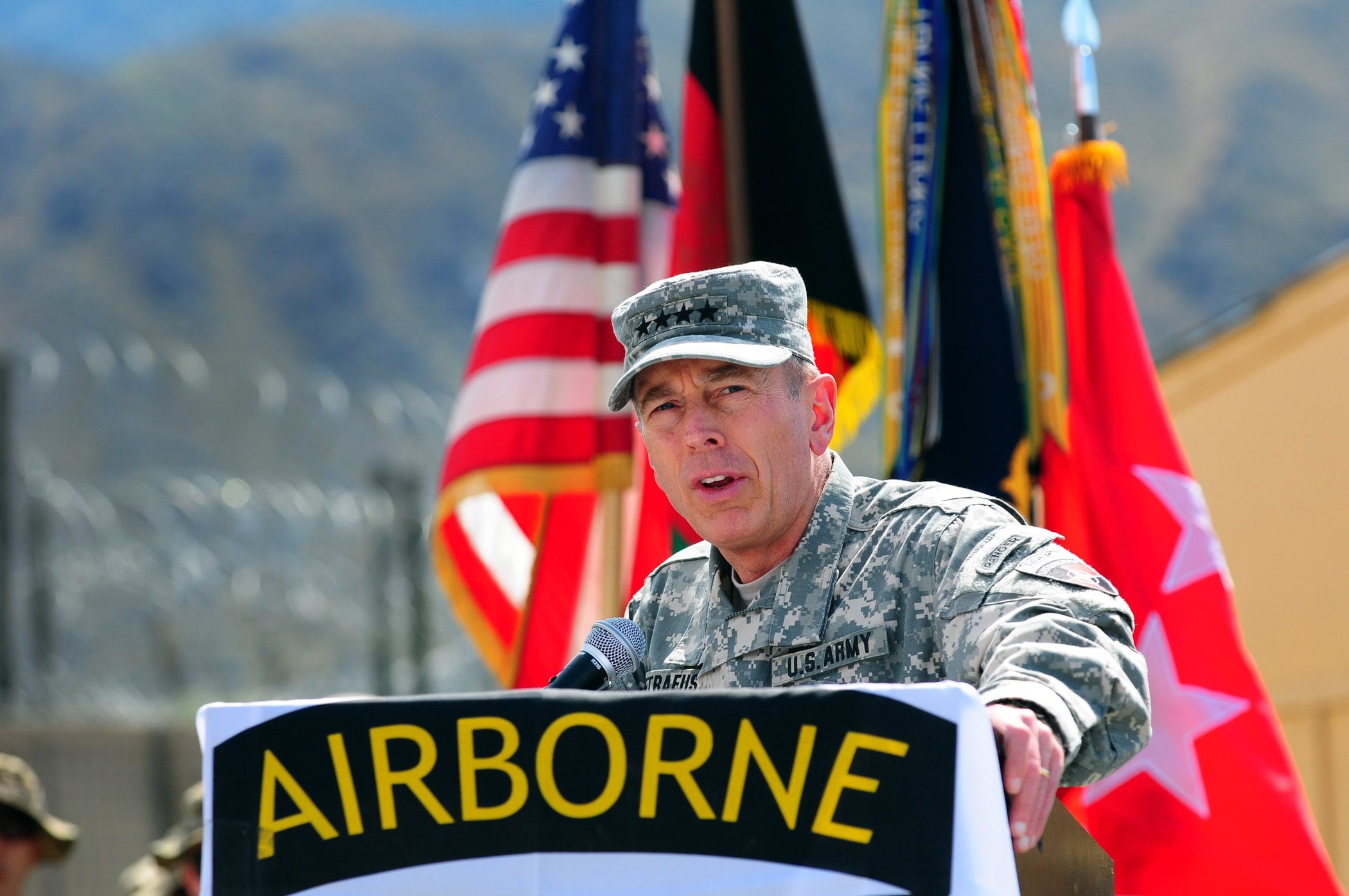WASHINGTON — Retired Army Gen. David Petraeus, who stepped down as CIA chief amid the scandal of an extramarital affair and pleaded guilty to divulging classified information, has emerged as a top contender as secretary of State in the incoming Trump administration.
Petraeus' fall from grace was swift but not complete. He resigned immediately from the CIA in November 2012 after the affair with his biographer Paula Broadwell became known. The most famous military leader of his generation, Petraeus remained in limbo, under FBI investigation and generally avoiding public life, until March 2015 when he accepted a plea agreement in which he admitted to spilling a massive amount of sensitive information to Broadwell and lying to FBI agents about it.
Since then, Petraeus has gradually crept back into view, authoring a number of op-ed pieces for major newspapers, including USA TODAY, and working for a venture capital firm. Last week, he told the BBC that he would serve in Donald Trump's administration if asked.
On Monday, he was scheduled to meet with President-elect Trump to discuss the top post in Trump's Cabinet. He would bring a lifetime of military and diplomatic experience at the highest levels, having commanded U.S.-led forces in both Iraq and Afghanistan. He is credited with tamping violence in Iraq for a time by instituting a counterinsurgency strategy and a "surge" of U.S. forces there.

Retired Gen. David H. Petraeus addresses the annual Colorado Remembers 9/11 ceremony on Sept. 11, 2014, in Denver.
Photo Credit: Capt. Darin Overstreet/Air National Guard
All of his success, however, comes with the major caveat of the plea agreement he struck with the Justice Department. It contains echoes of the controversy that surrounded the failed presidential bid of Hillary Clinton, who maintained a private email server when she served as secretary of State. However, in Clinton's case, FBI Director James Comey found no cause to prosecute her for careless handling of classified information.
Petraeus wasn't sloppy with classified information. He purposely gave it away to his lover and biographer and sought to cover that up by lying to federal investigators, according to the plea deal. The FBI investigation gained steam in the spring of 2013. USA TODAY was first to report that FBI agents interviewed Petraeus at his Arlington, Virginia, home.

Former CIA director, retired Gen. David Petraeus arrives at Trump Tower for a meeting with President-elect Donald Trump, Monday, Nov. 28, 2016, in New York.
Photo Credit: Evan Vucci/AP
Here's are key details of the case and plea deal Petraeus reached with the government:
• In late August 2011, Petraeus delivered to Broadwell eight black books containing classified and unclassified notes he took during meetings, conferences and briefings he took as a military commander. Broadwell, author of All In: The Education of David Petraeus, reviewed the material at a private home in Washington. That was a double no-no: Petraeus should not have released the information, and the home was not approved for storing such sensitive data.
• The notebooks he forwarded contained a trove of the nation's most guarded secrets, including secret code words, the names of covert operatives, war strategy, intelligence capabilities and mechanisms, and discussions at the highest levels of the national security establishment, including the president.
• Petraeus knew the risk of divulging the information and fretted about it in a taped interview with Broadwell, saying, ""Um, well, they're really — I mean they are highly classified, some of them."
• Petraeus "unlawfully and knowingly" removed classified materials and kept them in unauthorized locations from August 2011 to April 2013. He agreed to plead guilty to one criminal count of mishandling classified information.
• Petraeus' lies. He told FBI agents during an interview at his CIA office in October 2012 that he "had never provided any classified information to his biographer. "Defendant David Howell Petraeus then and there knew that he previously shared the black books with his biographer." He also signed a form after resigning from the FBI assuring authorities that he possessed no classified information; at the time, the black books were still at his home.
• The penalty: The federal court levied a fine of $100,000 against him, $60,000 more than prosecutors had sought, and placed him on probation in the plea deal.

Gen. David H. Petraeus, commander of NATO and International Security Assistance Force troops in Afghanistan, speaks with soldiers at Forward Operation Base Joyce on April 11, 2011.
Photo Credit: Chief Petty Officer Joshua Treadwell/Resolute Support Media
White House Press Secretary Josh Earnest acknowledged Monday that senior Obama administration officials have continued to consult with Petraeus, "based on his years of service to this country and his areas of expertise." He said he did not know how recently those consultations have continued.
"Obviously, maintaining any sort of informal advisory role is a lot different from being nominated secretary of State for the United States," he said.
"I'm certainly not going to speculate on who's going to serve in the Trump administration," Earnest said. "I think every president is going to have to decide for themselves what kind of person can best serve them and the country."
Petraeus has also remained a favorite of Senate heavyweights such as Sen. John McCain, the Arizona Republican and chairman of the Armed Services Committee, and the leading Democrat on the panel, Jack Reed of Rhode Island.
They praised him in January after Pentagon officials concluded that Petraeus be allowed to retain his four stars in retirement, a decision that allowed him to maintain a pension of around $220,000 per year. The senators wrote that Petraeus had a "long career of exceptionally distinguished, honorable and dedicated service to our nations and to the soldiers he so brilliantly led in combat."
Contributing: Gregory Korte



